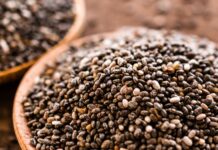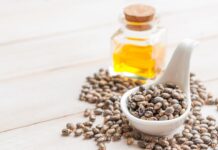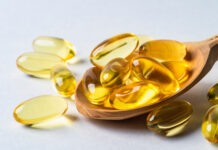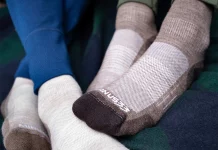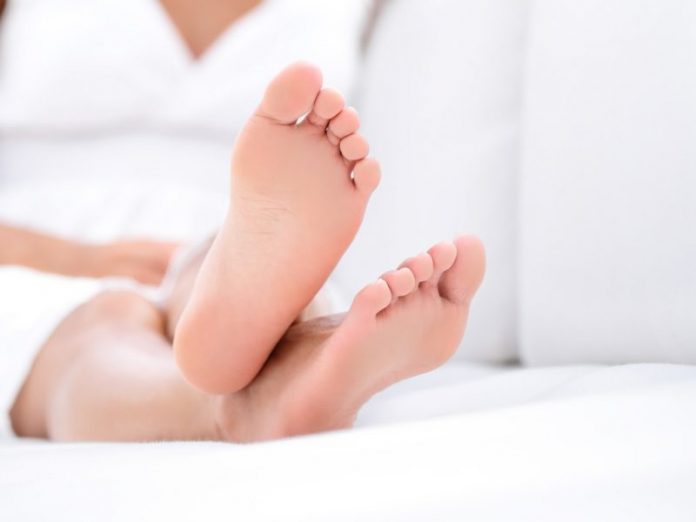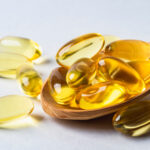To reduce sweaty feet and the bad odors (in addition to the natural remedies we recommend), it is essential to follow a good hygiene, to wash and to dry them daily.
Sweaty feet : What is plantar hyperhidrosis?
If perspiration is a natural physiological phenomenon, excessive sweating is often the source of discomfort. In medicine, excessive sweating is called hyperhidrosis. It may concern different areas of the body, including the feet.
It is more specifically referred to as plantar hyperhidrosis when it occurs at the foot plant level. Plantar hyperhidrosis, or excessive sweating of the feet, is characterized by hyperactivity of the sweat glands, or sweat glands.
Located under the skin, these glands secrete the sweat, a biological liquid involved in particular the control of the body temperature.
You Can Also Read : 3 Reasons To Consume Goji Berries To Boost Your Health
Causes of sweaty feet
The origin of sweaty feet is not yet clearly defined. According to recent scientific studies, it appears that psychic and thermal stimuli are involved in the excessive sweating of the feet.
Although the exact cause is not clearly established, certain situations and factors are known to promote foot perspiration:
- The practice of intense physical activity
- Wearing of totally hermetic shoes that do not allow the feet to breathe;
- Wearing socks or nylon stockings that promote foot sweating
- Poor foot hygiene.
The consequences of sweaty feet
Plantar hyperhidrosis results in excessive secretion of sweat, which results in a maceration of the feet. This causes a softening of the cornea layer which promotes:
- The development of bacterial infections;
- The development of skin infections, such as athlete’s foot;
- The occurrence of foot injuries
- The formation of blisters, more commonly called blisters;
- The appearance of frostbite, especially among sportsmen practicing winter sports.
Excessive sweating of the feet is often accompanied by a bromhidrosis, which corresponds to the appearance of bad odors at the foot level. This phenomenon is due to the decomposition of the organic matter present in the sweat, as well as the development of bacteria and fungus.
Homemade remedies to reduce sweaty feet
1. Infusion of rosemary, mint and sage

By combining the astringent and antibacterial properties of rosemary, peppermint and sage, we can obtain a natural product that reduces excess sweat on the feet and eliminates unpleasant odors.
Ingredients
- 2 cups water (500 ml)
- 2 tablespoons rosemary (20 g)
- 1 tablespoon mint leaves (10 g)
- 1 tablespoon sage (10 g)
Preparation
- Heat the water until boiling and add the herbs.
- Let stand for 15 minutes and pass the sieve.
How to use
- Pour the infusion into a small pot and put the feer in for 20 minutes.
- Dry your feet and repeat at least 3 times a week.
2. Black tea
The tannic acid contained in black tea helps to regulate the pH of the skin of the feet, preventing moisture and excessive growth of fungus and bacteria.
Its application in foot baths reduces bad odors and creates a protective layer against infections that cause chapping and accumulation of dead skin.
Ingredients
- 3 tablespoons black tea (30 g)
- 2 cups water (500 ml)
Preparation
- Add black tea to boiling water and let stand for 15 minutes.
- Filter the beverage with a colander and pour it into a container.
How to use
- Soak your feet in the brew for at least 20 minutes.
- You can also apply the treatment with a spray.
- Repeat two or three times a week.
3. Sodium Bicarbonate
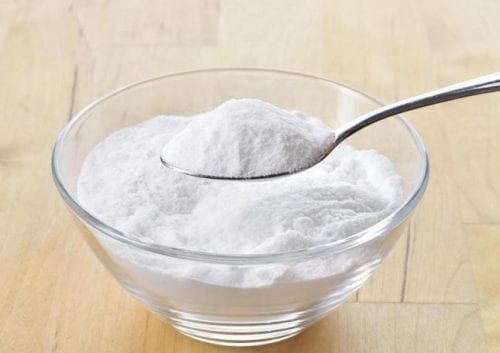
Sodium bicarbonate is an astringent and antiseptic ingredient that helps neutralize excessive sweating of the feet while eliminating the presence of fungus or infectious agents.
Its use allows to balance the pH of the skin in this area and to avoid the formation of unpleasant odors.
Ingredients
- 3 tablespoons sodium bicarbonate (30 g)
- 3 cups water (750 ml)
Preparation
- Heat the water, without boiling it, and pour into a basin.
- Add sodium bicarbonate and stir to dilute well.
How to use
- Soak your feet for about twenty minutes and dry well.
- In addition, if you wish, spray some sodium bicarbonate in the shoes and let it act for at least 12 hours.
- Repeat at least three times a week.
4. Corn starch and coconut oil
A natural cream based on corn starch and coconut oil helps to control excess moisture in the feet and moisturizes the skin and leaves a sensation of gentleness and cleanliness.
These ingredients change the environment that microbes need to proliferate and are ideal for preventing bad odors.
Ingredients
- 2 tablespoons corn starch (20 g)
- 3 tablespoons coconut oil (45 g)
Preparation
- Mix corn starch with coconut oil to get a creamy dough.
Application Mode
- Rub the dough on your feet and let it act for 20 minutes.
- Rinse and dry thoroughly.
- Repeat the treatment at least three times a week.
5. Tea Tree Essential Oil
Recognized for its antimicrobial and astringent power, tea tree essential oil is another natural alternative to controlling hyperhidrosis that affects the health of the feet.
It has anti-perspirant and antifungal properties which, in addition to avoiding excessive moisture, prevent the growth of fungus and germs.
Ingredients
- 3 cups water (750 ml)
- 1 tablespoon of tea tree essential oil (15 g)
Preparation
- Heat the water, and when they reach a tolerable temperature for the skin, add the tea tree oil.
- Pour the solution into a basin or a large container.
Application Mode
- Immerse your feet for 15 to 20 minutes and dry.
- Repeat the treatment 2 or 3 times a week.
You Can Also Read : VALERIAN : Uses, Side Effects, Interactions and Warnings











